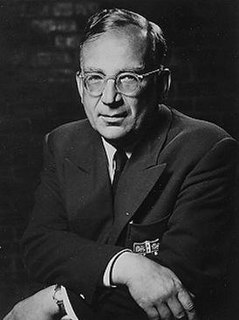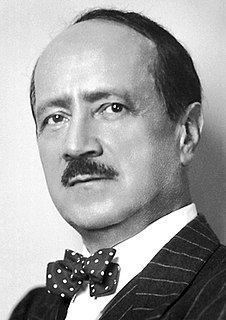A Quote by Adam Riess
Einstein wrestled with a problem back before we even knew the universe was expanding, and he was looking for a way to keep the universe from collapsing. And so he discovered, in his theory of gravity, something like this dark energy - he called it a cosmological constant - could play this role, pushing things away.
Related Quotes
We've known for a long time that the universe is expanding. But about 15 years ago, my colleagues and I discovered that it is expanding faster and faster. That is, the universe is accelerating, and that was not expected, but it is now attributed to this mysterious stuff called dark energy which seems to make up about 70 percent of the universe.
Much later, when I discussed the problem with Einstein, he remarked that the introduction of the cosmological term was the biggest blunder he ever made in his life. But this "blunder," rejected by Einstein, is still sometimes used by cosmologists even today, and the cosmological constant denoted by the Greek letter ? rears its ugly head again and again and again.
If it [the universe] was expanding fairly slowly, the force of gravity would cause it eventually to stop expanding and then to start contracting. However, if it was expanding at more than a certain critical rate, gravity would never be strong enough to stop it, and the universe would continue to expand forever.
One can imagine that God created the universe at literally any time in the past. On the other hand, if the universe is expanding, there may be physical reasons why there had to be a beginning. One could imagine that God created the universe at the instant of the big bang, or even afterwards in just such a way as to make it look as though there had been a big bang, but it would be meaningless to suppose that it was created before the big bang. An expanding universe does not preclude a creator, but it does place limits on when he might have carried out his job!
I got fascinated by the idea that our universe itself is comprised mostly of dark matter and dark energy. Things that we can't perceive at all, and we've only discovered that relatively recently. So it's almost as if our universe is the foam on the ocean of things that we can't see, or know, or perceive, and yet we feel the affects of those things right and left.
The universe is expanding, and every second that you're alive, the universe is bigger than it was a second before. There's nothing in front of us, exactly, other than the future, and there's no space for the size, the density of the universe to go. Because it's expanding at every point simultaneously.
































